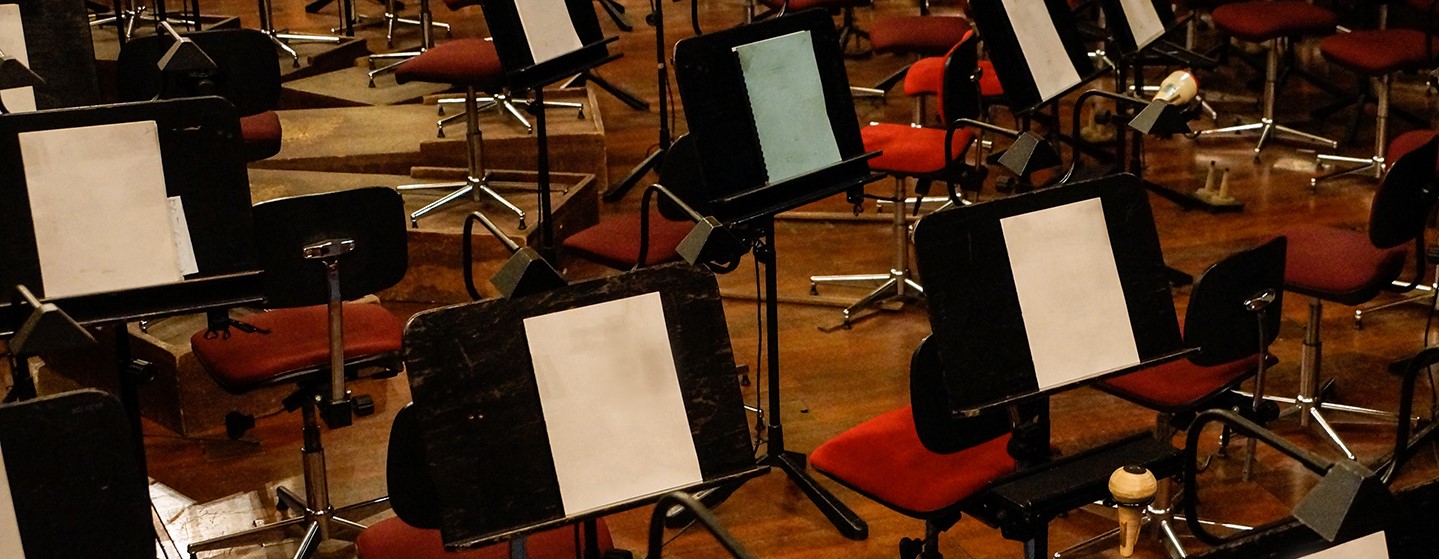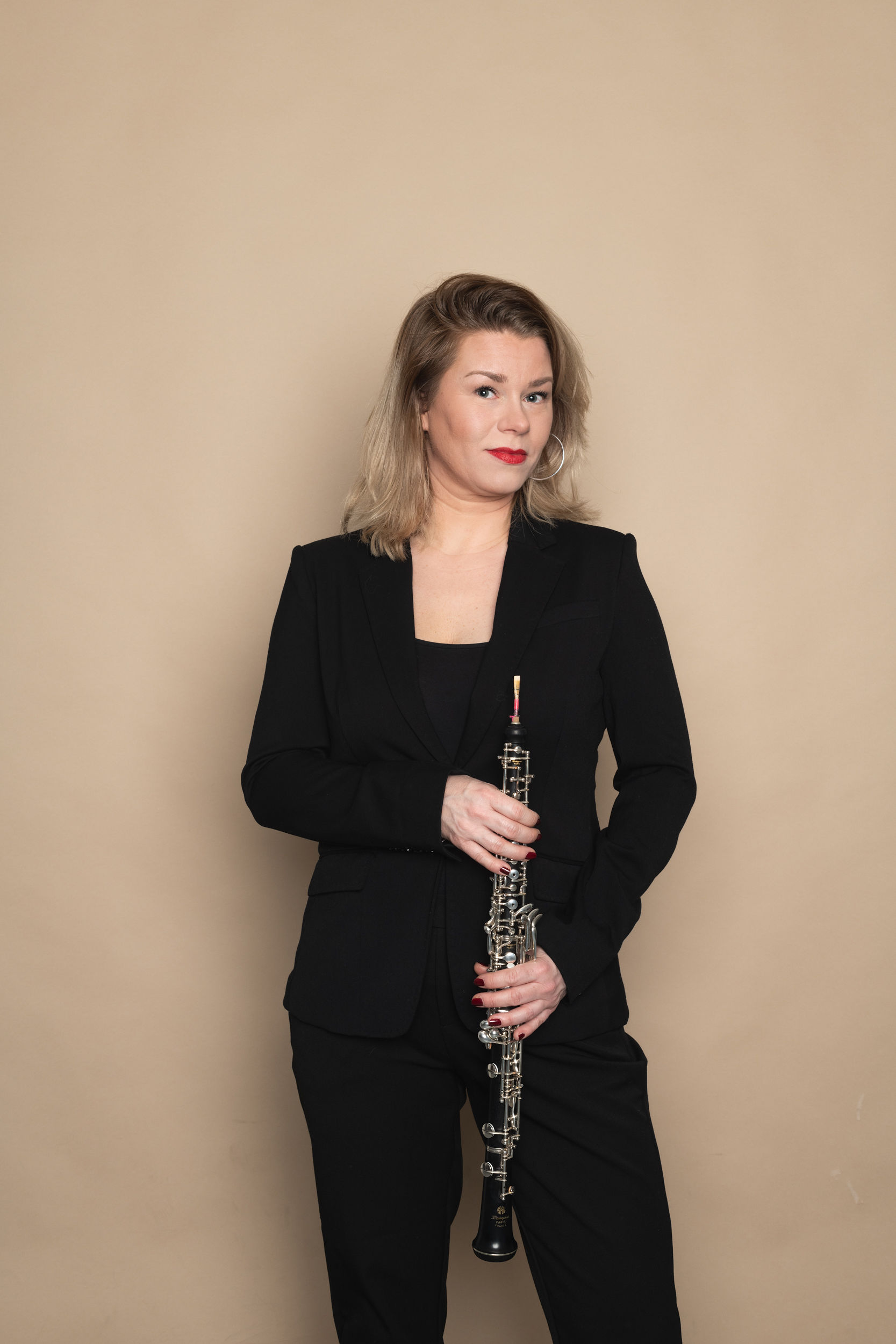There's a platform in the Netherlands with more than 3000 members, freelance musicians, who are demanding the right to fair pay. To make it tangible, the Platform voor Freelance Musicians collaborated with various stakeholders in a program called ‘FairPACCT’. Together with Platform ACCT a networking organisation and research agency, they developed a tool that automatically calculates a fair minimum rate for freelance classical musicians. While the Platform for Freelance Musicians hasn’t changed the overall status of freelance musicians in the country yet, the foundation is in the process of persuading the government and stakeholders like orchestras, venues and employers to make ‘fair pay’ a reality, it has created the critical mass it needed to make the voice of musicians heard.
Α woman, a classical musician, is at the heart of the initiative. Even before COVID, Dorine Schoon, an oboe musician player realized that working in precarious conditions would not allow her to move on with her life. She was dreaming of combining a career in her artistic field and having a family and her own house, but that meant some form of professional and social security that she was not getting.
She started gathering people in a closed Facebook group under the demands of having fairer conditions for freelancers. COVID accelerated everything and now the group turned into a foundation that represents thousands of musicians who abide by the demands she has compiled. The campaign has managed to expose the venues that exploit musicians whether that is lunch concerts, playing for Radio and TV shows for free on the basis of promotion, the lower payment of freelancers next to fully employed musicians in orchestras and the low pay for music teachers. But it has cost her career, as she was blacklisted by the most important music organizations in her country, the Netherlands.
FairPACCT is a three-year program for the 'Improvement of Employment Conditions and Collective Agreements' to promote the establishment of collective agreements on better employment conditions within various disciplines in the cultural and creative sector in the Netherlands, run by Platform ACCT with the support of the government of the country. As the creative sector is becoming more and more of a crucial sector of political and economic development, many wonder if a European Status of the Artist standard allow freelancers across the continent to realize the potential to produce the culture the continent needs without having to sacrifice their personal lives. Dorine Schoon certainly thinks so…
CU: It is impressive that you were blacklisted for demanding equal rights for freelancers
DS. I cannot prove that of course.
CU: But it's proven by facts, isn’t it? And you're still fighting for the rights of freelance musicians.
DS. Well, otherwise it was all for nothing…
CU: But how did it start?
DS. I had friends and colleagues around me who had the same questions as I did but didn't dare to talk about them in public because of the fear of their employers. I thought, okay, everyone is on Facebook. So let's start a secret Facebook group. I only invited a few colleagues but before I knew it exploded. There were so many people joining and wanted to be in this group to talk about working conditions and fair rates that it got out of my hand.
CU: Let's start with the facts. How many people are on your platform now?
DS: There are around 3400 People in this Facebook group. As the group grew, we realized the need to professionalize our efforts. Political parties, ministers, and unions began to take notice. Our profile was raised further when we made the headlines for concerts at the main Amsterdam concert hall where freelance musicians had to work for free. While the concert hall provided a great opportunity for freelance musicians to perform and promote themselves, it also highlighted the fact that musicians cannot pay their bills with promotion alone. Our biggest win was when organizations and political parties began to engage with us and the unions. Our goal is simply to create a fair labour market for our profession.
CU: How did the COVID-19 pandemic impact your campaign?
DS: COVID changed everything. Our membership grew exponentially from around 100 to over 2,000 musicians. With concerts cancelled and limited government support, we became a vital source of information and support for freelance musicians. We transformed into an information hub, providing guidance on the latest restrictions and advocating for the rights of freelance musicians. We wanted to work alongside the unions, not as competitors, but as partners in mobilizing our group. Solidarity is crucial to us. We aim to inform society and fellow musicians about the realities of our profession, emphasizing that music is not just a CD or a Spotify stream. There are people behind it who deserve fair compensation.
 CU: Can you explain the concept of fairPACCT? How did you come to use that platform?
CU: Can you explain the concept of fairPACCT? How did you come to use that platform?
DS: fairPACCT is a unique initiative created and facilitated by the Dutch Platform ACCT that brings together stakeholders from across the music industry. It includes organizations, employers, and freelance musicians like myself. Our goal is to discuss and address issues affecting freelance musicians and work towards agreements that protect the entire value chain. For me, it was a groundbreaking experience to have all these parties around me, including employers, stage representatives, unions, subsidy partners, and festival organizers. We had open conversations about the realities of working as a freelance musician. It was both empowering and challenging.
CU: What is considered fair pay for a freelance musician in the Netherlands today?
DS: We commissioned a research partner to conduct a thorough study on the working conditions and compensation of freelance musicians in the Netherlands. To establish fair rates, a comparison was made with a dozen related collective labour agreements. Relevant salary scales were taken as a starting point and translated into an hourly base rate with a self-employed surcharge. Additionally, a survey was conducted within the professional group of freelance musicians to gather information on the average time spent on (usually) paid and unpaid activities within the various professional practices. Based on this research, we developed a user-friendly tool that allows musicians to calculate fair pay based on their circumstances. This tool empowers musicians to advocate for themselves and demand fair compensation.
CU: Have the government and businesses agreed to your calculations?
DS: This is the next step for us. While stakeholders recognize the validity of our findings, we are still navigating the path to implementation. We are actively seeking government support and industry-wide collaboration to transform our research insights into tangible changes. Our ultimate goal is to create an environment where freelance musicians can focus on their craft without the burden of financial insecurity.
CU: Can you share your journey as a freelance musician and how it led you to advocate for fair pay?
DS: As a freelance musician, I had a successful career, performing with orchestras and ensembles and creating my concert programs. However, as I grew older, I began to realize the fragility of my situation. I knew I needed to save for the future, but the lack of long-term insurance and the fear of illness or injury made me anxious. I wondered how others managed to balance their careers with financial stability. It seemed impossible to achieve life goals like buying a house or having children. However, a beautiful turn of events happened. I now have a wonderful five-year-old daughter, and with the support of my partner, who has a steady job, we were able to buy a house. And then I thought, okay, but how can we change this? How can we grow and develop as a musical sector? How can we grow and blossom? Big words, but for me it is very important. And also getting beyond the fear of speaking out about these sorts of things. It was all very fragile. It was all very stressful in a way because you wanted to work so hard, and so you don't say anything but you keep your mouth shut about this sort of thing. And now it's getting better and better because we're talking more and more about our working conditions.
CU: What is the status of artists in the Netherlands, and what are the challenges they face?
DS: There is no special status for artists in the Netherlands. Of course, you can receive social assistance when everything goes wrong, but even that assistance is out of reach due to my partner's income. But without my income, we can’t cover our basic needs, and I lack long-term insurance, leaving me vulnerable in case of illness or old age.
CU: What are the next steps for PvFM and your personal goals?
DS: Our primary goal is to ensure that freelance musicians can focus solely on making music, without the burden of financial woes. We want all freelancers to enjoy a secure pension and adequate insurance, allowing them to invest in their development and learning. This should apply to musicians across all genres, from classical to pop. Personally, after losing all my employers, I hope to continue advocating for fair working conditions and inspiring other freelance musicians to stand up for their rights.
CU: Shouldn't these issues be addressed by the union of musicians in the Netherlands?
DS: I have been a member of the union for many years and they have been supportive, especially during my legal battle against the National Ballet Orchestra. However, I believe that I should take responsibility where I can. And so should all the freelance musicians. I played for the National Ballet Orchestra for more than 15 years. They called me one day to announce that I wouldn't be on their list anymore, without explaining. We (the union and I) won the case as the judge said that this should have been a steady contract. I’m very grateful that the union made it possible to go to court and I could bring this to light. Nowadays there is scepticism about the threat of organising fewer concerts due to the rise in freelance payments. And, of course, now that Fair Pay is tangible, it all becomes too expensive. You asked me what's my personal goal: For me, it's really important that all my efforts and all that I've been through were not for nothing. I hope to inspire other freelance musicians to come up for themselves and demand their rights in work. Whether performing or teaching.









 CU: Can you explain the concept of fairPACCT? How did you come to use that platform?
CU: Can you explain the concept of fairPACCT? How did you come to use that platform?